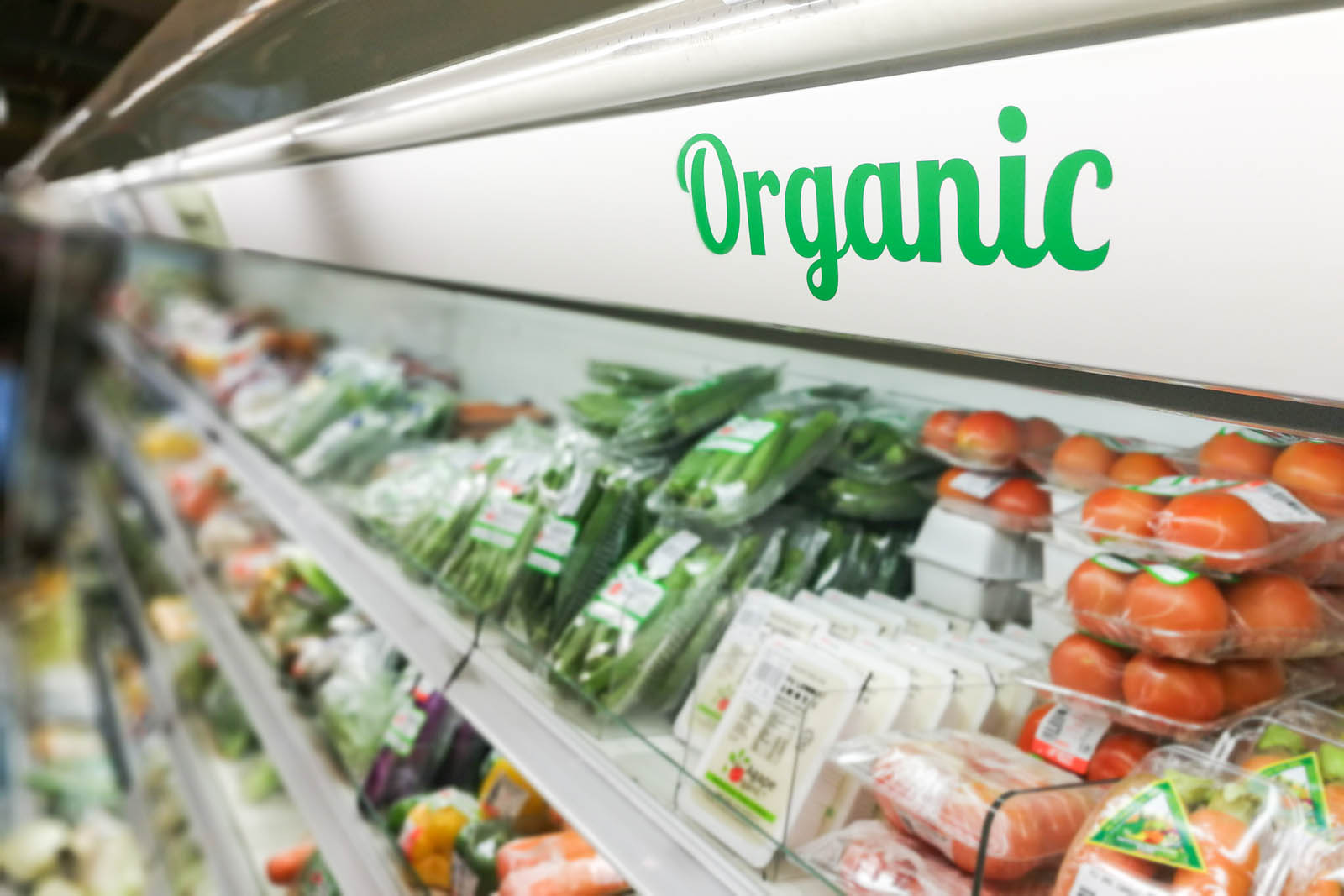
Is the ‘Organic’ Trend Wilting?
Filed Under: Best Practices, Market Research, Shopper, Food & Beverage

Zoe Honeycutt
Analytical Support Specialist, C+R Alum
Organic has been a popular trend in the food and beverage space since the early 2000s when organically-raised fruits and vegetables first became widely available. Consumers, recognizing a connection between the environment and their health—and finding that organic produce tasted just as good as conventionally-raised, began to demand more. Today, nearly 20 years later, organic claims can be found throughout the grocery store, including in packaged foods like cereal, chips, and macaroni and cheese.
As of 2018, organic food still accounts for only 5.7% of total food sales in the U.S. However, according to some sources, its growth is expected to continue. Food Dive reports that the global organic market is projected to increase at a compound annual growth rate of 14% through 2021.
Manufacturers may still be rushing organic products to shelves, but does the claim still sway health-conscious consumers?

Studies that C+R has conducted over the past year seem to indicate that more holistic phrases have superseded organic in consumers’ minds, and the organic trend—while not imminently on its way out—might be losing steam.
Consumers’ desire to eat healthy is strong, but organic is not top of mind for many
In focus groups and quant surveys alike, consumers consistently claim to want to eat healthier. However, fewer state that organic is a ‘must-have.’
Instead, when looking for healthier food and beverage options, they report looking for:
- More protein
- Simple, fewer ingredients that are easy to pronounce (i.e., clean labels)
- Less sugar
- Fewer carbs
Additionally, in YouthBeat’s recent data among Parents, which aggregates surveys collected between January and June of 2019, parents were asked to rate the importance of 24 factors about their children’s diet. “Ensuring my child eats organic food” ranked in the bottom five, with only 40%of parents indicating it’s “very” or “somewhat” important.
Parents’ top concerns when thinking about their children’s diet are:
- Ensuring my child gets enough vitamins/minerals (78%)
- Ensuring my child gets enough protein (75%)
- Limiting the amount of sugar my child consumes (71%)
- Limiting the amount of high fructose corn syrup my child consumes (64%)
- Ensuring my child gets enough calcium (69%)
As the children of these parents (younger Gen Z and Generation Alpha) grow and begin to make their own food choices, will the fact that their parents did not prioritize organic food influence them to eschew organic claims in favor of any food deemed to be higher in protein, lower in sugar, etc.? If this proves to be the case, it could further reduce the sway of an organic claim as a reason to purchase. Alternatively, as these young people grow up prioritizing environmental sustainability, organic products may experience a renaissance.
Confusion and distrust of ‘organic’
Tellingly, in the research we’ve conducted most of the health claims people cited as being most important were claims that are relatively easy to interpret at the shelf. If someone wants more protein – or less sugar, or more vitamins – they simply read the label and choose the products that offer the most (or fewest) grams. Those wanting fewer ingredients count the items on the label and determine if they recognize and can pronounce each.
By contrast, organic can be hard to judge. One explanation could be that ‘organic’ and ‘natural’ are often conflated in consumers’ minds, rendering both terms meaningless buzzwords. We often hear in our research that consumers “don’t know what organic means” or ”anyone can put natural on a label.”
While the FDA has specific guidelines for what can be considered organic, there are none for natural – and consumers are wise to this. However, when probed, few consumers know what the guidelines are for organic, leading them to distrust this claim as well.
W(h)ither organic?
As researchers love to say, more investigation is necessary to pronounce the organic trend as ‘over’ or ‘dying’ in the food and beverage space. However, early indications—at C+R at least—are that organic may need to reinvent itself as something more easily understood at the shelf to reclaim a top-of-mind position with health-conscious consumers.
explore featured
Case studies
